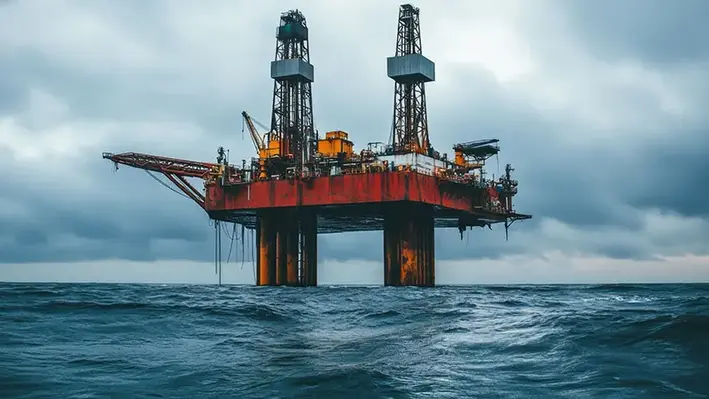
 Abandoned oil and gas facilities are a significant source of methane emissions, according to the IEA’s recently-released Global Methane Tracker 2025.
Abandoned oil and gas facilities are a significant source of methane emissions, according to the IEA’s recently-released Global Methane Tracker 2025.
IEA analysis suggests that the energy sector was responsible for around 145 Mt of methane emissions in 2024 – more than 35% of the total amount attributable to human activity. Oil operations were responsible for around 45 Mt, natural gas operations for nearly 35 Mt, and abandoned wells for around 3 Mt. An additional 2 Mt of methane leaked from end-use equipment.
Most properly plugged wells emit negligible amounts of methane. But if wells are not properly decommissioned and sealed, they can continue emitting methane for many years, through cracks, fissures and gaps. Most emissions result from wells that have recently been abandoned, which highlights how essential it is to plug and monitor wells that are no longer operational in a timely fashion.
The IEA notes that emissions from abandoned facilities are not given sufficient attention in policies and regulations. It argues that governments can play a critical role, for example by requiring close and decommissioning plans to incorporate measures to mitigate methane emissions. Here, a distinction need to be made between wells for which an operator is accountable and those for which no operator can be identified, ie “orphaned” facilities. In cases where an identified operator is responsible, governments can require operators to perform closure activities for assets being decommissioned, such as plugging and well integrity monitoring. Governments can require operators to set aside funds throughout the asset’s life to finance the decommissioning of abandoned wells.
In the case of orphaned wells, governments can inventory these facilities to identify the main methane emitters. The USA for example has established a programme to identify and inventory orphaned wells on federal lands, which includes measuring and tracking their methane emissions. Western Australia is among those jurisdictions which have undertaken similar inventories. While under the EU Methane Regulation, Member states are required to establish inventories of non-producing wells, identify responsible parties, and take action to mitigate any emissions by August 2025.
To reduce methane emissions from orphaned wells, governments can provide public funding for plugging and sealing. Closure projects could also be made eligible for carbon credits, allowing project operators to trade these credits on carbon markets, the IEA suggests, adding that fees collected from operational assets could help to finance closure activities.
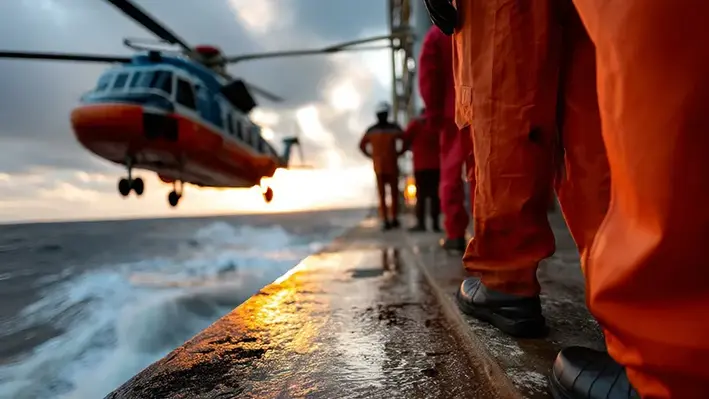
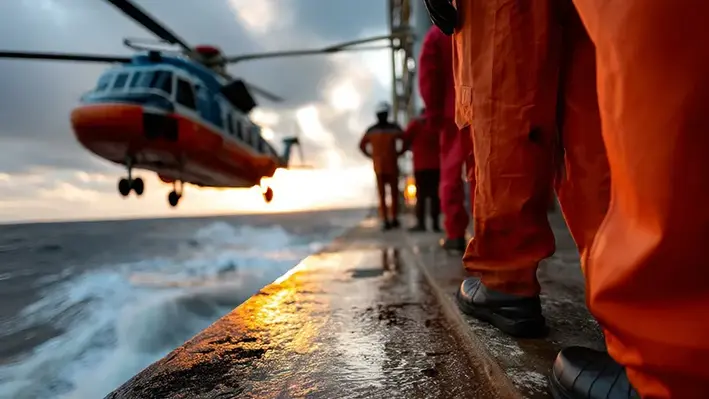 Decommissioning Australia’s ageing oil infrastructure will not only be a test of the industry’s technical and engineering prowess – increasingly, it will also challenge its economics.
Decommissioning Australia’s ageing oil infrastructure will not only be a test of the industry’s technical and engineering prowess – increasingly, it will also challenge its economics.
With the slump in oil prices undermining the finances of the major oil and gas companies in recent months, operators will need to work harder and smarter to meet stringent decommissioning objectives in the face of tighter spending constraints.
Oil prices have drifted downwards for the most part this year, at times below US$60 per barrel, squeezing budgets across the board.
Max Oppenheimer, Client Advocate - Energy at Miller Insurance, said this will test decommissioning activities across all major oil and gas production basins in the world.
Potentially, it could also trigger an acceleration in decommissioning work as operators seek to retire ageing, underperforming assets.
“Previous slumps in the oil price in 2014, and during the 2020 onset of Covid-19, impacted project economics and saw periods of accelerated decommissioning activity as operator’s sought to cold stack ageing assets to mitigate their losses,” Oppenheimer noted in a 9th May 2025 briefing posted on the company’s website.
“Prices are currently testing post-Covid lows, and risk managers may once again be faced with addressing decommissioning risk concerns sooner and on accelerated timescales.”
From an insurance perspective, Oppenheimer also outlined a range of claims scenarios that could arise from decommissioning activities and that should be considered by operators, as well as risk managers.
Australia may, however, be able to learn lessons from other major producing regions across the globe, he added, notably mature basins such as the North Sea.
“Decommissioning is a global challenge to the energy industry,” said Oppenheimer. “The greatest obligations currently reside in the North Sea basin, followed by Brazil and the USA.”
In the North Sea, a total of 22 fields ceased production during 2024, and up to 40% of currently producing fields could cease production by 2030 based upon current investment plans, or sooner if investment cases falter based on a lower crude outlook.
At the end of 2024, a backlog of 483 wells in the UK sector alone required plugging and abandonment activities, a number that could double to 2030.
“The UK challenge is particularly acute,” said Oppenheimer, “with annual decommissioning spend set to average in excess of US$3bn in the mid-term outlook.”
Australia recently agreed to work more closely with the UK in the area of decommissioning as the task becomes more pressing.
Global Underwater Hub (GUH) and Subsea Innovation Cluster Australia (SICA) signed a Memorandum of Understanding (MoU) in April to collaborate in the subsea sector, with a focus on areas such as decommissioning, as well as carbon capture.
At the time of the announcement, GUH Chief Executive, Neil Gordon, said decommissioning represented a “significant opportunity” in Australia, where the inventory of subsea assets to be decommissioned includes over 1,500 wells and structures and 4,500km of pipelines.
This would stimulate “major opportunities” for specialist plugging, cutting, inspection and recovery technologies, he noted.
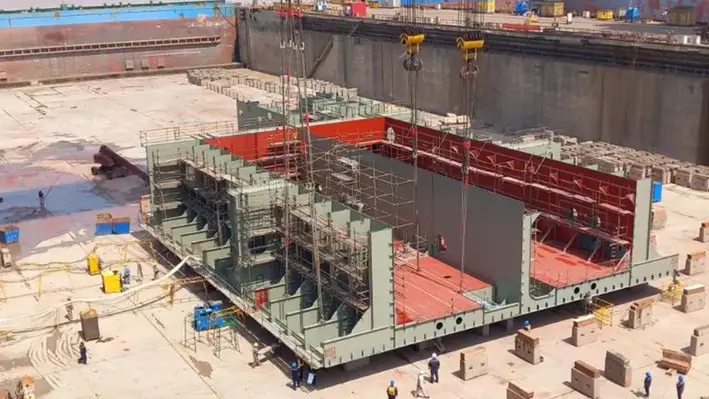
 Offshore contractor Allseas — which has been tasked with decommissioning work in the Bass Strait for ExxonMobil Australia — is expanding its fleet.
Offshore contractor Allseas — which has been tasked with decommissioning work in the Bass Strait for ExxonMobil Australia — is expanding its fleet.
Its new cargo barge, Braveheart, which is being added to the fleet to boost flexibility for heavy lift campaigns, is now taking shape at the CIMC Changhong Shipyard near Shanghai in China.
Following official keel laying in April, the first of 145 huge steel blocks – together weighing a massive 26,000 tonnes – has been lifted into the dry dock for assembly, outfitting and painting.
At 200 metres long and 57 metres wide, it’s a close match to another Allseas barge, Iron Lady, but with key enhancements: a deeper operational draught, a full electric ballast system for faster load transfer operations and a significantly higher deck load capacity.
Together, Allseas’ trio of purpose-built cargo barges — Iron Lady, Braveheart and Bumblebee — will support the company’s platform removal and installation operations, delivering efficient topsides and jackets loading and transfer solutions to and from disposal yards.
The company has already started planning and preparation for what will be the largest offshore decommissioning assignment in Australian yet on behalf of Exxon subsidiary, Esso Australia Pty Ltd.
Allseas last year secured the contract to remove up to 12 retired platforms from the Gippsland Basin in the Bass Strait, with a combined weight of approximately 60,000 tonnes.
It plans to remove all the structures with another vessel, Pioneering Spirit — currently active in the North Sea — during an intense campaign beginning in late 2027.
Once safely removed, the facilities will be transferred to barges or vessels for load-in to the Barry Beach Marine Terminal in Victoria for dismantling and recycling by a separate onshore contractor.
In the meantime, Allseas is expanding its fleet with the Braveheart barge, which is expected to launch this September, with delivery scheduled at the end of 2025.
At the Chinese shipyard, the first construction phase in the dock focuses on the bottom section of the ballast pump room housing critical equipment.
Installing these blocks first allows the yard to immediately begin fitting the 1.5-metre diameter ballast pipes and four powerful ballast pumps, capable of moving nearly 10 Olympic-sized swimming pools' worth of water every hour.
Once this phase is complete, construction will move on to phase two: assembling the engine room.
Allseas also announced this month two further newbuild offshore construction vessels to enhance its fleet, to be built by Wuchang Shipbuilding Industry Group in China.
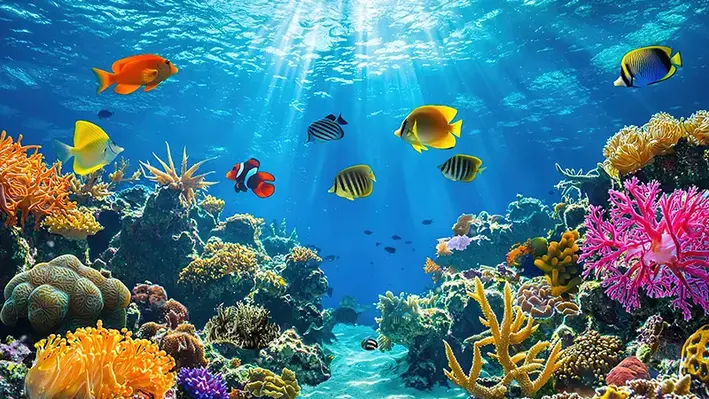
 A report by the Australian Academy of Technological Sciences & Engineering on Offshore oil and Gas Decommissioning Technologies has highlighted Australian research and technology capabilities and gaps.
A report by the Australian Academy of Technological Sciences & Engineering on Offshore oil and Gas Decommissioning Technologies has highlighted Australian research and technology capabilities and gaps.
The report argues that there are a number of areas where further R&D would benefit the decommissioning industry, particularly towards the end of the decommissioning value chain around waste management, recycling opportunities and the environmental impact of decommissioning. Australia’s focus on environmental protection will provide opportunities for further research both at home and abroad, the ATSE comments.
With world-leading marine research, strong transferable geotechnical skills from the mineral resources sector, and the government’s Net Zero by 2050 commitment, Australia has an opportunity to leverage this expertise and momentum to drive technology innovations in decommissioning which are suited to Australia’s unique marine ecosystems.
The report highlights Australian strengths in marine science and contamination research, making it well placed to lead research on the impact of contaminants on the environment and ecosystems. The nation is home to three major national marine science organisations – CSIRO, the Australian Institute of Marine Science (AIMS) and the Fisheries Research and Development Corporation, which produce world-leading marine research – as well as a number of other national centres of research excellence in this domain. The report identifies research gaps in contaminant profiling of infrastructure; contaminant exposure limits; mapping of contaminants through ecosystems; long-term impacts of contaminant exposure; real-time, in-field contaminant monitoring technologies; domestic facility re-use profiling; and integrity and environmental management for in situ decommissioning.
Another research strength is recycling; Australia has set ambitious targets for waste recovery and recycling, supported by funding into initiatives such as the AUD $250 million Recycling Modernisation Fund, and the establishment in 2024 of the Solving Plastic Waste Cooperative Research Centre, focused on designing out plastic waste and supporting the transitions of companies in Australia's plastics value chain. The report identifies research gaps in cleaning process optimisation; plastic waste recycling pathways; and new and improved waste recycling pathways.
With well-established oil and gas and mineral extraction industries, and the presence of large industry players driving technological and process innovations, Australia has the opportunity to leverage its expertise to facilitate research into oil and gas decommissioning technologies, the report suggests. Research gaps exist in waste transport approaches; waste management infrastructure and circular economy planning; long-term impacts of contaminant exposure; and domestic facility re-use profiling.
The report notes that Australia and its universities have limited expertise in developing technologies specifically for oil and gas decommissioning, suggesting that Australian universities should be encouraged to develop links with private industry and government research funding to develop the necessary expertise and address capability gaps in conjunction with universities with strengths in these areas, including those in Norway, the UK and the US Gulf of America.
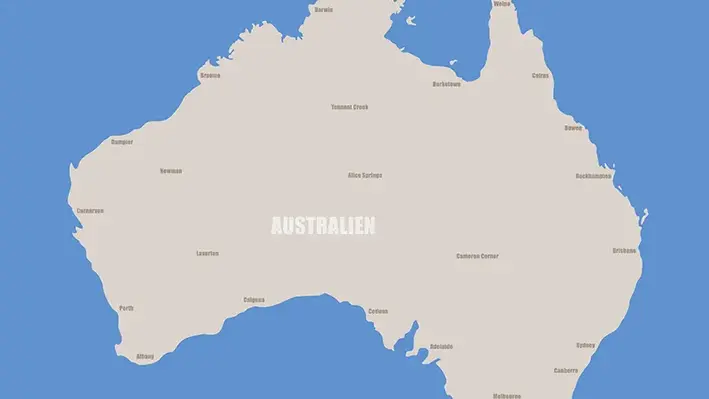

Woodside Energy is currently executing a number of decommissioning projects offshore Australia, and in its Q1 2025 report, outlined progress in the quarter.
The company concluded the multi-year decommissioning programme at Enfield, offshore Australia, safely and successfully completing the removal of all facilities, with the recovery of final infrastructure in February. Only survey activities remain. It commenced deconstruction of the Griffin Riser Turret Mooring at the Australian Marine Complex in preparation for recycling and reuse, and continued decommissioning activities at Bass Strait, completing the plug and abandonment activities for 27 wells, including on the Bream B platform. Plug and abandonment activities commenced on the Kingfish A and Cobia platforms.
Subsequent to the quarter, Woodside concluded the 10-well Stybarrow plug and abandonment campaign, took delivery of a mobile offshore drilling unit at the Minerva field, offshore Victoria, and commenced preparations to plug and abandon the first of three Minerva wells.
Woodside is now planning to undertake subsea and well infrastructure removal decommissioning activities within the Angel Field.
In line with requirements under the Environment regulation, the company has submitted an Environment Plan to National Offshore Petroleum Safety and Environmental Management Authority (NOPSEMA) which is currently under assessment, covering removal of redundant subsea infrastructure in the Angel Field.
The Angel subsea and well infrastructure is located around the Angel production platform in Commonwealth waters, approximately 125 km north of Dampier. The subsea infrastructure is in water depths between approximately 77 m and 85 m. Woodside plans to remove redundant Angel subsea infrastructure and three production wells connected to the Angel platform. Subsea infrastructure removal activities are currently planned to commence by 1 December 2026 subject to approvals and vessel availability. Subsea decommissioning activities are currently scheduled for around three months between around Q3 2026 and Q1 2027.
On its website, Woodside underlines its commitment to executing decommissioning activities with a focus on safety and the environment, coupled with efficiency. “Decommissioning is integrated into project planning and operations, from the early stages of development through to the end of field life. This includes conducting assessments to inform our planning and decision making, which is underpinned by science and marine research. In the developing regulatory environment, we continue to listen, learn and respond to our stakeholders, while expanding our global decommissioning experience,” the company says.
Woodside’s decommissioning approach recognises the importance of reusing and recycling material from its decommissioning activities where possible. Its waste mitigation hierarchy prioritises reduction, reuse, recycling, and treatment over disposal.
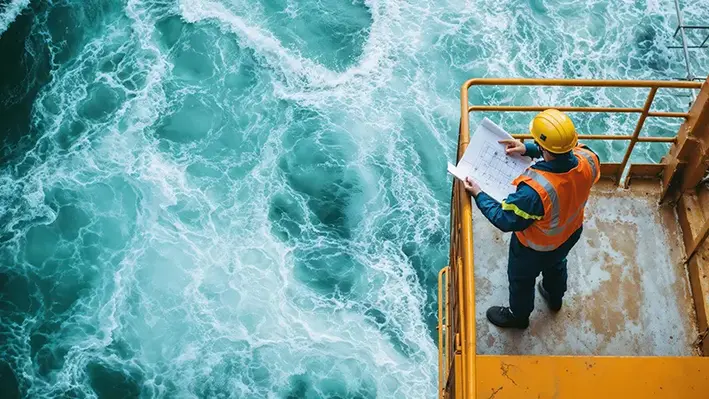
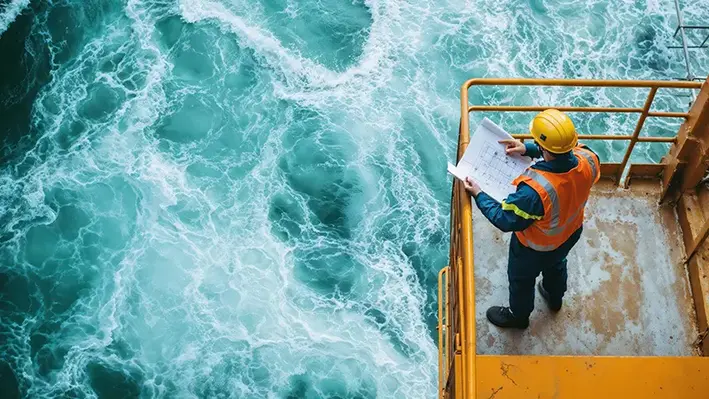 The decommissioning challenge facing Australia is coming into sharp focus, presenting critical legal and contractual issues for all involved, according to law firm Wotton Kearney (WK).
The decommissioning challenge facing Australia is coming into sharp focus, presenting critical legal and contractual issues for all involved, according to law firm Wotton Kearney (WK).
In a recent update, the firm outlined the scale of the task facing operators, contractors and engineering teams against a regulatory environment that will be watching closely.
Over the next 50 years, Australia is expected to see more than US$40bn in offshore decommissioning activity, with most of that spend focused on well plugging and abandonment, as well as pipeline removal.
Titleholders are legally responsible for the full cost and safe removal of offshore infrastructure under the Offshore Petroleum and Greenhouse Gas Storage Act 2006, and must meet strict environmental and consultation obligations.
“While this signals significant economic opportunities for the broader Australian maritime sector,” WK noted in the update, “in an era when much greater focus and emphasis is placed on the green economy, decarbonising, and prioritising environmentally sound practices over economic expediency, it also raises questions.”
These questions include not only the technical feasibility in carrying out these complex and potentially hazardous operations, but also precisely what the decommissioning and environmental obligations are for operators and infrastructure owners.
“The media has recently focused on some high profile examples, such as Esso’s decommissioning plan for 12 platforms in the Bass Strait, Victoria, with the Maritime Union of Australia raising concerns that not all of the infrastructure will be removed,” the WK update added.
It noted that the discussion around Esso’s proposal has prompted debate as to what the 2006 Act actually permits.
“While decommissioning activities under the 2006 Act cannot commence without the titleholders securing a series of environmental approvals through the National Offshore Petroleum Safety and Environmental Management Authority (NOPSEMA), Esso’s decommissioning proposal includes leaving rigs in place and converting these into artificial reefs. This was previously done in the Gulf of Mexico.”
But the practice of leaving some infrastructure in place has created debate about the environmental implications and whether that breaches any legal obligations, WK added in the update.
In this regard, decommissioning involves a range of “complex and sometimes controversial issues,” WK stated.
Australia, like other nations, also has international obligations as a signatory to the United Nations Convention on the Law of the Sea 1994 (UNCLOS), which is the primary international legal instrument governing decommissioning.
What it means is that “complying with regulatory requirements for decommissioning is far from the straightforward.”
That is purely from a legal and regulatory perspective, without the additional burden from any public scrutiny or reputational risks arising from decommissioning activities.
“It’s therefore crucial to develop an appropriate strategy with appropriate stakeholders, align this with insurance cover, and coordinate execution of this plan with logistic and supply chain suppliers,” WK added.
The law firm is exploring some of these issues in a series on decommissioning to identify key issues for stakeholders and to help navigate the uncertainties ahead.
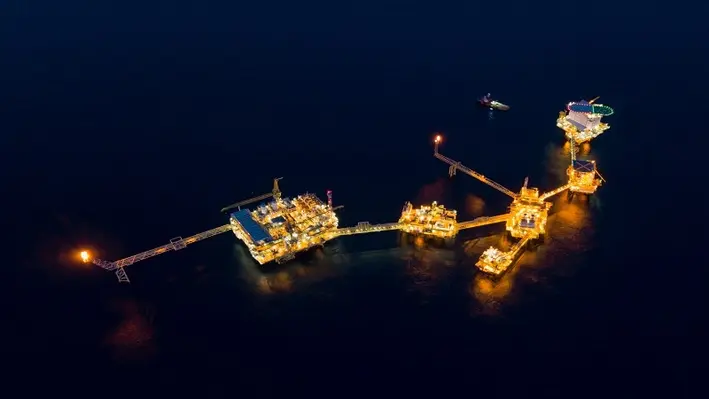
 Earlier in the year the Centre of Decommissioning Australia welcomed Simon Kemp as the latest member to its Industry Advisory Committee.
Earlier in the year the Centre of Decommissioning Australia welcomed Simon Kemp as the latest member to its Industry Advisory Committee.
Simon, whose current role is Decommissioning Manager at ExxonMobil Australia, has brought two decades’ worth of industry experience to the role. After spending 23 years with ExxonMobile in diverse roles across offshore projects in the Bass Strait, he brings a wealth of knowledge to the Committee.
Now based in Melbourne, Simon leads the strategic planning for decommissioning ExxonMobil Australia’s Gippsland operations.
Commenting on the new position, Simon said, “I’m looking forward to continuing my work with CODA in this new role, helping advance Australia’s capabilities in responsible and sustainable decommissioning.”
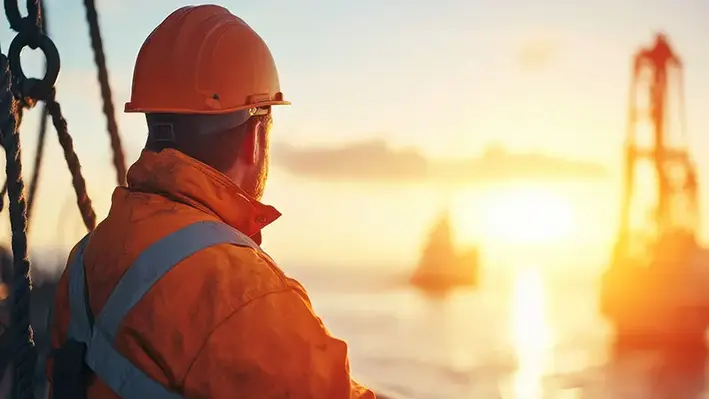
 A recent breach flagged by Australia’s offshore regulator Nopsema during decommissioning activities on the Stybarrow field highlights some of the hazards now facing operators.
A recent breach flagged by Australia’s offshore regulator Nopsema during decommissioning activities on the Stybarrow field highlights some of the hazards now facing operators.
As Australia’s decommissioning effort gathers pace — an industry estimated to be worth US$60bn over the next few decades — oil and gas operators must seek to navigate what is becoming an increasingly complex legal and regulatory minefield.
Nopsema recently issued US-based offshore contractor McDermott with an ‘Improvement Notice’ citing safety concerns on its DLV2000 construction vessel.
The ship was undertaking decommissioning activities at the Stybarrow field for operator, Woodside Energy, but was ordered to cease work until it had rectified any breaches.
A Nopsema inspector visited the ship in March and raised concerns about the securing of a portable generator, which it was claimed could have resulted in heightened health and safety risks to personnel on board.
“The incorrect securing of the generator resulted in the generator shifting, when the generator was used as a secure point for belaying a tag line, subsequently the tag line became snagged,” the Improvment Notice stated on 20 March, 2025.
“The Manual does not describe the assurance procedure to ensure the generator has suitable sea fastening.”
The status of the case has now been marked as ‘Complied With’, which suggests that McDermott took immediate action to rectify the issue.
It highlights the increasing glare of regulators on the industry as it grapples with the decommissioning challenge.
Nopsema has scrutinised the work of other offshore contractors in recent times, including Subsea 7, though this was not linked to decommissioning activities.
The Stybarrow development is situated within production licence WA-32-L located on the North West Shelf in Commonwealth waters ranging from 700 to 850 metres in depth, approximately 51 km northwest of the North West Cape, Western Australia.
First oil was produced at the field in 2007 and production ceased in 2015.
Subsea infrastructure connected the field’s reservoirs to the Stybarrow floating production, storage and offtake (FPSO) facility, which has already been removed.
At the cessation of production, all wells were bull-headed and valves were pressure tested and closed, while flowlines were flushed with treated seawater.
Ongoing operations involve periodic surface and subsea inspections of the remaining subsea infrastructure.
“Well abandonment and full-field decommissioning of the remaining infrastructure will be undertaken at a future point in time and will be subject to separate approvals for this phase of activities,” Nopsema states in an information resource on its website.
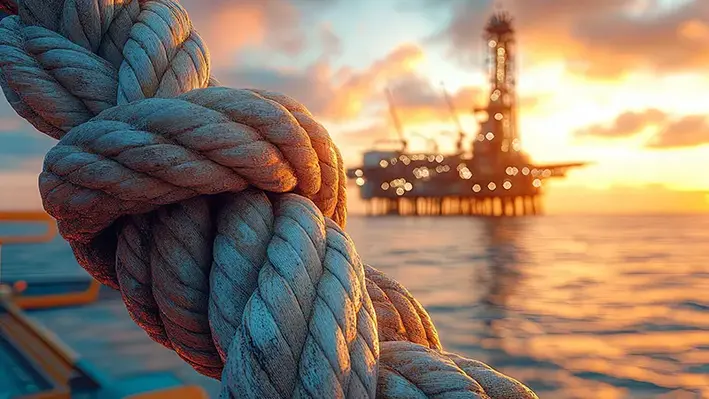
 Australian law firm Johnson Winter Slattery (JWS) has released a paper on some of the legal issues surrounding what it calls the 'rising regulatory scrutiny' on offshore petroleum assets.
Australian law firm Johnson Winter Slattery (JWS) has released a paper on some of the legal issues surrounding what it calls the 'rising regulatory scrutiny' on offshore petroleum assets.
It has been estimated that around 5.7 million tonnes of decommissioning material will need to be removed from Australian waters over the next 30-40 years at a cost of around US$60bn.
The document — entitled ‘Navigating the Waters of Decommissioning: Legal Obligations and the Rising Regulatory Scrutiny on Offshore Petroleum Assets’, by Rebecca Cifelli, a Partner at JWS — highlights key steps and processes facing operators and contractors in this fluid environment.
“Decommissioning forms part of the offshore petroleum lifecycle,” the paper notes. “Obligations to remove or appropriately deal with property arise for titleholders, not just at final cessation of operations, but throughout the operation phase as assets within an operating field reach the end of their useful life.”
As the Australian oil and gas industry matures, a number of fields are reaching end of life. Accordingly, the paper notes, decommissioning liabilities are coming into “sharper focus” for both industry and regulators.
“Regulators are increasingly concerned that titleholders meet their obligations during the operations phase by proactively decommissioning throughout the life of the project and planning for decommissioning as early as possible,” it notes.
This is reflected in The National Offshore Petroleum Safety and Environmental Management Authority’s (NOPSEMA) information paper, ‘Planning for proactive decommissioning’ and its ‘Decommissioning Compliance Strategy 2024-2029’.
NOPSEMA sets out its expectations that titleholders engage in planning for decommissioning from the inception of a project and detail this planning in environment plans (EPs) submitted under the Offshore Petroleum and Greenhouse Gas Storage Act 2006 (Cth) (OPGGSA).
The JWS paper goes on to other key areas of interest such as decommissioning obligations in Commonwealth waters and the timing for removal of physical infrastructure and assets.
NOPSEMA’s ‘base case’ for all offshore operations is the full removal of all property unless an alternative arrangement is accepted, it adds.
In terms of timelines, Section 270 (OPGGSA) requires decommissioning to be completed on a title before it is relinquished. However, the OPGGSA does not otherwise stipulate any timeframes for the completion of decommissioning obligations.
The Australian Government and NOPSEMA have interpreted section 572 as requiring timely decommissioning. In the absence of any express timeframes in the legislation, NOPSEMA’s ‘Decommissioning Compliance Strategy’ 2024-2029 sets the following targets:
Non-producing wells: to be suspended with downhole barriers within 12 months of loss of real-time monitoring and permanently abandoned within 10 years of suspension.
Floating infrastructure: to be removed within 12 months of cessation of production (COP).
All wells: to be plugged and abandoned within three years of COP.
All other property: to be decommissioned to approved end state within five years of COP.
“While these are targets only, our experience indicates that NOPSEMA will apply them to its assessment of EPs and will need to be satisfied that departures from the targets are justified,” the JWS paper adds.
The vast majority of decommissioning liabilities are located off Western Australia and will therefore fall within the jurisdiction of either NOPSEMA or the WA Department of Energy, Mines, Industry Regulation and Safety (DEMIRS).
Victoria is the only other State that has significant property to be decommissioned in its coastal waters.
In the second half of 2024, the Victorian Government launched an inquiry into offshore petroleum infrastructure requiring decommissioning over the coming decades and the regulatory powers of the Victorian Government to ensure oil and gas producers meet their obligations.
The JWS paper also explores areas such as permissioning documents and early planning, as well as remedial directions and trailing liability.
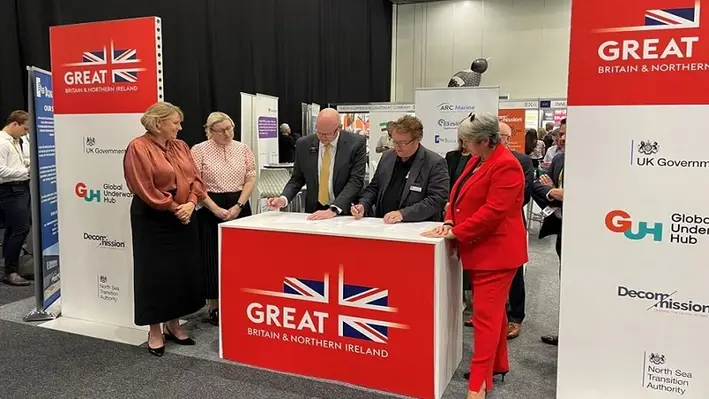
 Global Underwater Hub (GUH) and Subsea Innovation Cluster Australia (SICA) have signed an MoU to collaborate over the development of the subsea sector in both hemispheres.
Global Underwater Hub (GUH) and Subsea Innovation Cluster Australia (SICA) have signed an MoU to collaborate over the development of the subsea sector in both hemispheres.
Under the agreement, the organisations will actively promote opportunities for their subsea supply chains in both countries and share market intelligence and learnings around diversification strategies for the energy transition and defence operation.
GUH Chief Executive, Neil Gordon, said, “Australia has a broad conventional energy mix with strong ambitions towards net zero […] crucially, and similar to the UK, Australia champions a just transition which builds in energy resiliency and security with opportunities in sustained oil and gas production, decommissioning and carbon capture.”
Gordon also highlighted the continued production within the oil and gas industry within Australia where there are opportunities within new developments as well as in the expansion oil current production by leading operators including Woodside and Santos.
He added, “Decommissioning is a significant opportunity in Australia where the inventory of subsea assets requiring to be decommissioned includes over 1,500 wells and structures and 4,500km of pipelines with major opportunities for specialist plugging, cutting, inspection and recovery technologies.”
SICA Cluster Manager, Colin McIvor, commented, “This MoU marks an important step in strengthening collaboration between Australia and the UK’s subsea sectors. By working with GHU, we’re opening new opportunities for innovation, knowledge sharing, and international market access for SICA members. Both organisations bring unique strengths: SICA’s agility and cross-sector innovation focus and GUH’s depth of experience and established global networks. By sharing these, we can deliver real impact for established and emerging industries and accelerate significant growth for both countries.”
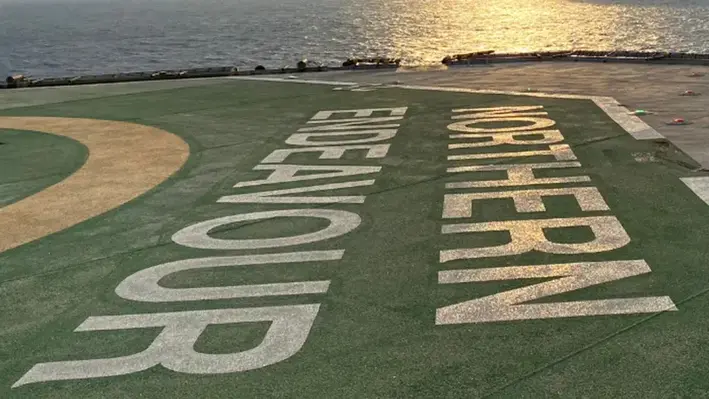
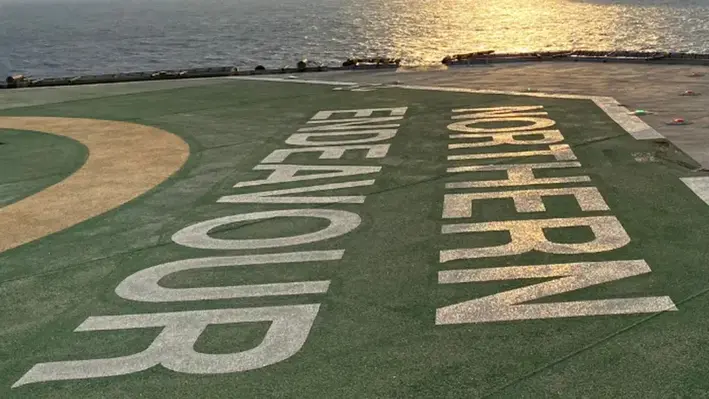 Australia’s 2025 federal budget, unveiled this week, reinforces the government’s commitment to decommissioning, including the completion of the Northern Endeavour project.
Australia’s 2025 federal budget, unveiled this week, reinforces the government’s commitment to decommissioning, including the completion of the Northern Endeavour project.
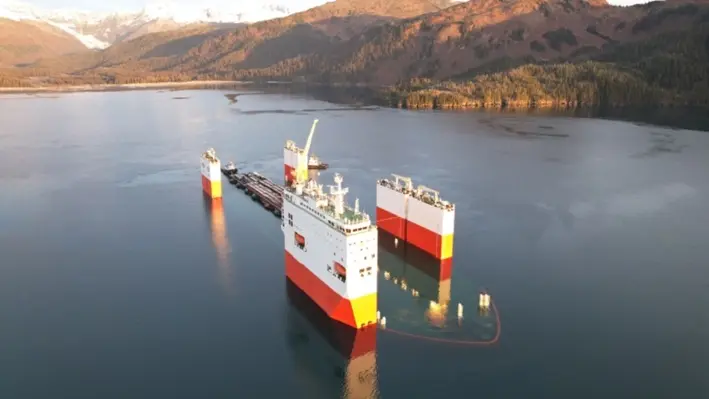
 Earlier this month, the Australian Government awarded COSCO Shipping Heavy Transport (COSCO) a contract to dry tow the Northern Endeavour FPSO vessel to its recycling location.
Earlier this month, the Australian Government awarded COSCO Shipping Heavy Transport (COSCO) a contract to dry tow the Northern Endeavour FPSO vessel to its recycling location.
The Hua Rui Long semi-submersible heavy lift vessel will tow the Northern Endeavour to a facility for decontamination, dismantling and recycling. The FPSO measures 274 metres in length, meaning there are only a few vessels in the world capable of carry something of this magnitude. Securing a vessel in the right timeframes for this project marks a significant milestone for the programme.
COSCO will work with Petrofac to arrange for the FPSO to be towed to the recycling location after disconnection. The Department of Industry, Science and Resources released a request for tender to find a supplier to recycle the FPSO. Submissions closed on December 13th, 2024, and the Department is currently evaluating its options.
Page 5 of 13
Copyright © 2026 Offshore Network